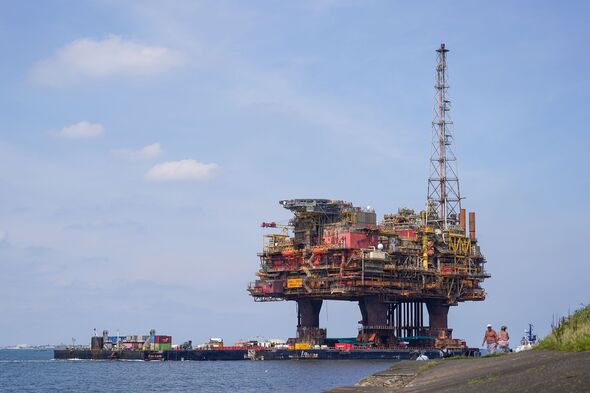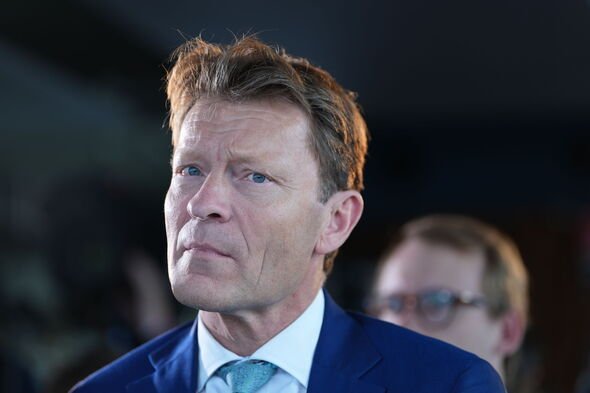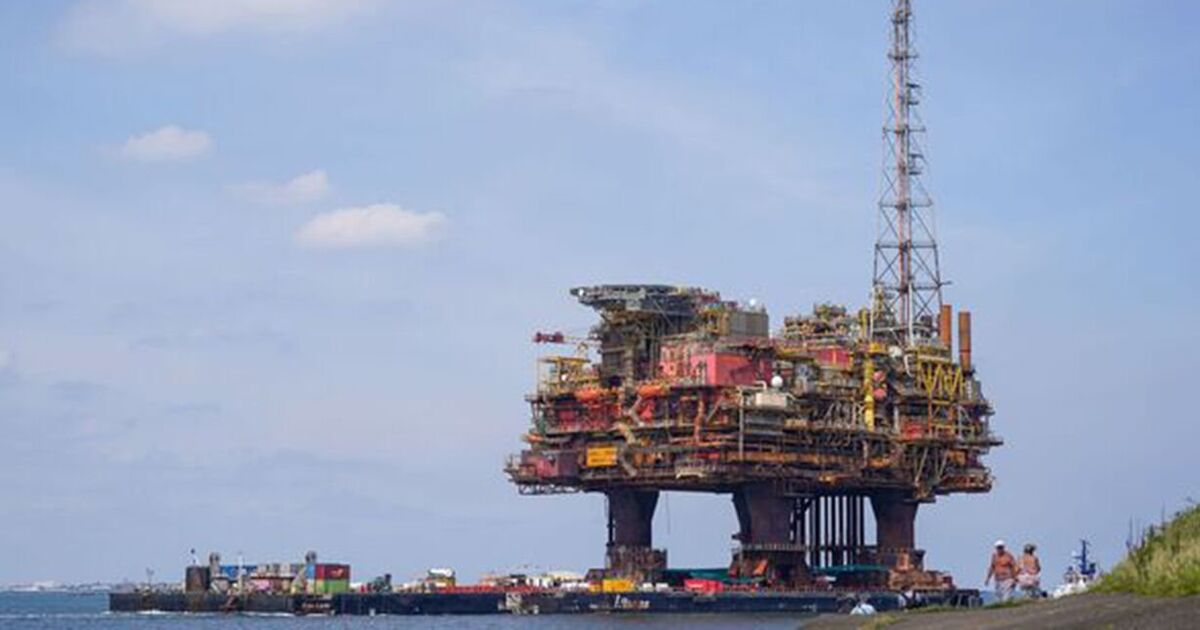Norway's Energy Minister Terje Aasland has said the move would secure Norway as 'a long-term supplier of oil and gas to Europe'.
Norway's Energy Minister Terje Aasland has said the move would secure Norway as "a long-term supplier of oil and gas to Europe".

An oil rig from the Brent Field prior to being dismantled in Teeside (Image: Getty)
Britain must follow Norway’s lead and lift an embargo on drilling licences, opposition parties have urged, after the oil-rich nation reopened exploration licences in the North Sea for the first time since 2021. The Conservatives and Reform UK said Energy Secretary Ed Miliband should reconsider the ban on new oil and gas licences as Norway opens the basin to exploration, with drilling getting underway this month.
The move comes as UK output continues to shrink, in part due to previous policy decisions including a windfall tax and restrictions on new drilling. Norway became Britain’s primary source of gas last year, and the latest licensing round is likely to increase those supplies. Announcing the licencing round – which covers the northernmost Barents Sea, the Norwegian Sea, and parts of the North Sea – Energy Minister Terje Aasland said the move would secure Norway as “a long-term supplier of oil and gas to Europe.”
Read more: Russia burns as devastating drone strike tears through oil depot
Read more: 'Labour's energy policy is economically reckless and strategically naive'

Reform UK Deputy Leader Richard Tice (Image: Getty)
He added: “The Norwegian continental shelf will continue to create value and jobs for our country. The oil and gas industry is knowledge, expertise and technology intensive. Increased activity in this industry also has positive effects on other industries and parts of our society.
"It means oil and gas are the engine of the Norwegian economy, and I am convinced that the Norwegian continental shelf has a bright future.
"There are many exciting development projects underway and there is great interest in the licencing rounds. This contributes to new investment opportunities and profitable jobs.”
The announcement marks a reversal of Norway’s previous policy, which paused new exploration in frontier regions, reported The Telegraph. Companies already holding licences are now able to nominate new exploration areas anywhere on the Norwegian continental shelf, excluding only zones already in production.

Terje Aasland, Norway's Energy Minister (Image: Getty)
Preparatory work began earlier this year after the Norwegian parliament voted in May to restart frontier exploration.
In response, UK opposition figures warned Britain is missing a major opportunity. Andrew Griffith, the shadow business secretary, called on the government to emulate Norway’s approach.
He said: “The UK is missing a massive economic trick with the self-harm of not exploiting our North Sea reserves. It’s not as if the economy is growing so fast we don’t need the cheaper energy or jobs that this would bring. We should follow Norway’s lead and relaunch new exploration and drilling projects now."
Reform UK’s Richard Tice went further, calling for both offshore and onshore drilling to be expanded, including shale gas.
He said: “Not only should we be scrapping Net Zero, we should be opening up as many oil and gas licences, for exploration and drilling, as possible, both offshore and onshore with shale gas. We should be taking advantage of our energy treasure.
“It is criminally financially negligent not to do so. We have got hundreds of billions of pounds worth of this energy treasure that this government and the previous Tory administration wanted to leave untouched.”
Mr Tice also suggested the government should consider taking a stake in new projects, mirroring Norway’s approach to building a sovereign wealth fund from energy profits.
UK energy ministers maintain that issuing new licences would not significantly reduce bills or improve energy security, and would worsen climate goals. However, industry leaders argue that with supportive government policies, Britain could produce much of the oil and gas it needs domestically.
David Whitehouse, chief executive of Offshore Energies UK, said: “Norway’s decision to press ahead with a new licensing round underlines its commitment to long-term, secure supplies for Europe alongside growth in renewable energy.
"Domestically we could produce half of the oil and gas that will be required to reach net zero by 2050 from UK waters, yet we are becoming increasingly reliant on imports to fill the gap between what we produce and what we consume.”
Read Next

Daily Express uses notifications to keep you updated













